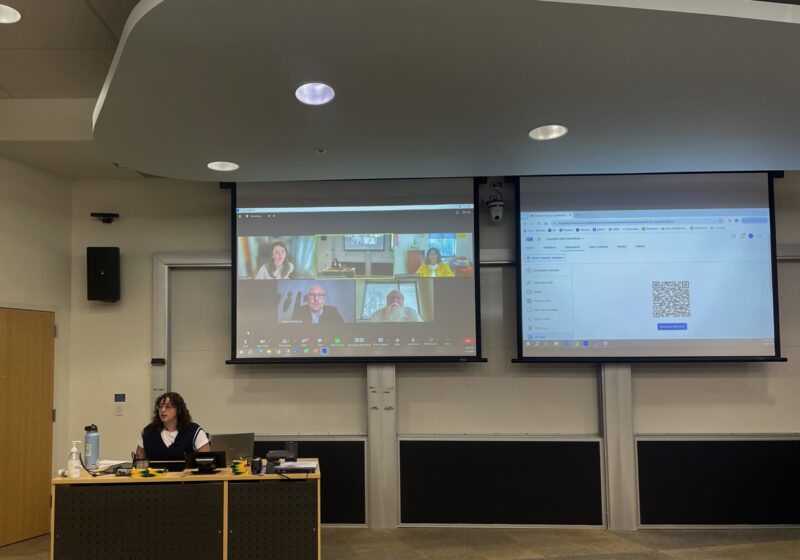The newly passed health care bill has become one of the most controversial topics surrounding the Obama administration. As the bill made its run through Congress, the American Medical Association (AMA) was instrumental in shaping the provisions into what they are currently.
AMA President J. James Rohack did an interview with the CT to discuss the AMA’s specific role in developing the health care bill, the impact it will have on college students and his visit today at University of Rochester Medical Center.
What will today’s speech mainly be about?
The lecture is to give the audience kind of an update on the history of health reform in the U.S. and the role that the AMA has played not only in the historical aspects, but what’s happened over the last few months, and the current status of where health reform is.
The AMA has endorsed the law. Can you tell me the specific reasoning for that?
As we took a look at the Senate bill with the reconciliation package … the things that we supported were the expansion of health insurance coverage to an additional 32 million Americans; getting rid of … what we call ‘administrative waste”; making sure there’s health insurance reform so that people in the U.S. wouldn’t have denials of health insurance because they get sick; making sure that there’s an investment in quality and prevention; and making sure that we also start to address medical liability.
The one thing that was not in the bill is fixing a Medicare payment formula that has been a problem for physicians now for about seven years.
Congress, as it continues to be doing temporary fixes, only grows the problem, and that’s the reason we’ve been involved and engaged to try and make everyone aware of what the problem is so that Congress will make a final change.
How does the bill seek to address the lack of primary care physicians?
The legislation [contains] loan repayment programs to pay back the amount of debt that most medical students have. The loan repayment program will allow an individual to, if they go into primary care, pay off [their debt] in about four years.
How will the bill affect URMC directly?
Federal law says that anyone who [goes] to the emergency department has to be cared for. And so the uninsured person, who doesn’t pay for their health care, by the time they reach the emergency department, is sicker and requires a lot more health care.
As a result of that, everyone who has health insurance has been paying for that individual who doesn’t.
So the [provisions] in the legislation to increase the number of people that have health insurance will make it easier for everyone to get health care at a time earlier in their disease.
One of the provisions is that kids can stay on their parents’ insurance up to age 26? Can you elaborate on that?
The concept would be that, say you’re a student who just graduated from UR, or let’s say you’re still at UR, and you become a full time employee. Your employer then can provide that health insurance coverage as they do now, or you as an individual in a couple years once this health insurance exchange gets up and going if your employer doesn’t provide health insurance, these exchanges will allow you to have a choice to select a health plan that you can afford. Then, if you fall below 400 percent of federal poverty, then you get an advancable tax credit to help purchase that health insurance.
If a parent doesn’t have coverage either, how affordable will these plans be?
To participate in the health insurance exchange, [states] have to offer different levels of benefit packages. In some respects it’s like a car. A car has a basic package … then there’s a package that has leather seats and automatic locks and keyless entry. The difference is the difference in what you’re going to pay.
What would you say to skeptics of the bill’s effectiveness?
I think it recognizes that the status quo was unacceptable, and doing nothing would only drive America into a worse state where it would be more difficult to make changes. This bill [contains] important steps that our nation has to take to be economically viable, but by no means is it the final bill. There’s more work that we need to do as a nation, and this is an important first step.
What do you think students of the University most need to understand about this bill?
I think the important thing this bill has done was to start to look at how can America make sure that every American has health insurance that is affordable and portable, so that you’re not in a situation where you can’t leave your job because you’ll lose your health insurance.
This bill recognizes that most students now, when they graduate, they may have five or six different jobs before they eventually retire. And so portability, being able to have insurance that’s affordable and allowing you the opportunity to choose the plan that best meets your needs that’s what this bill will allow for.





